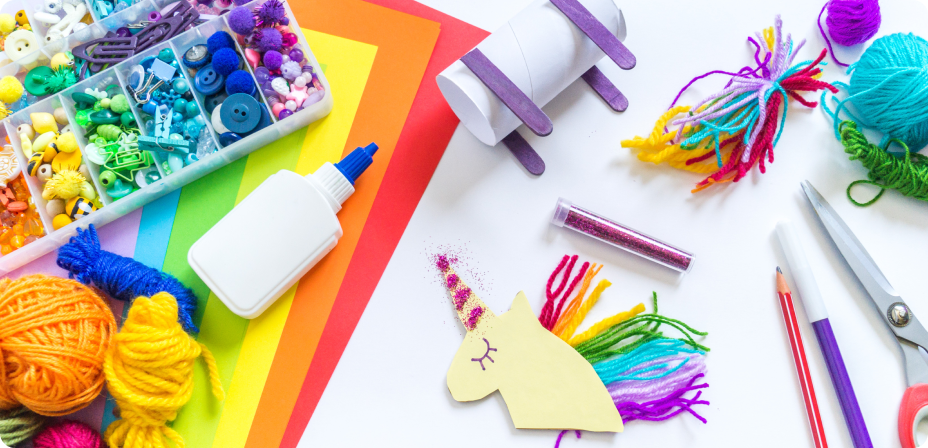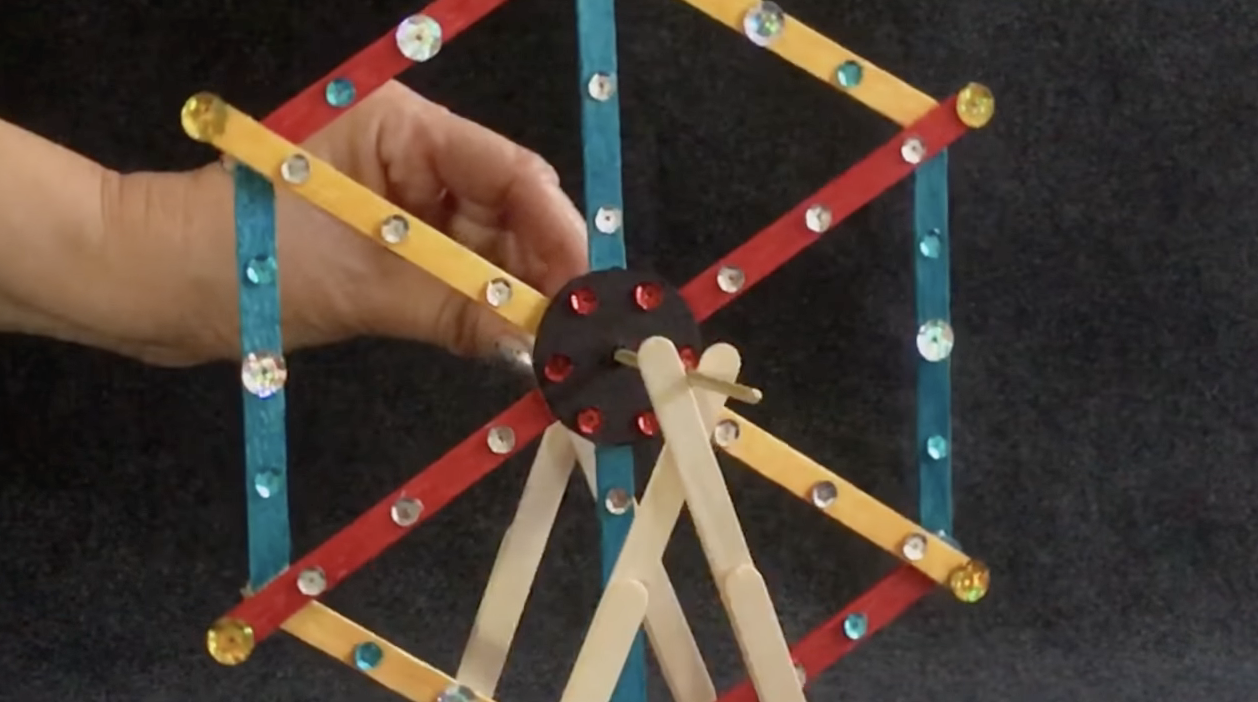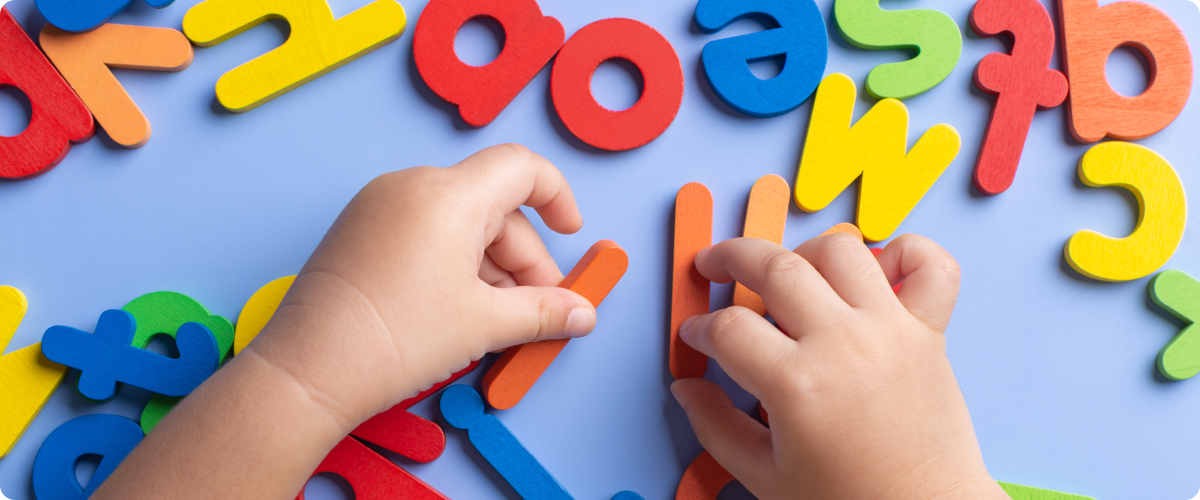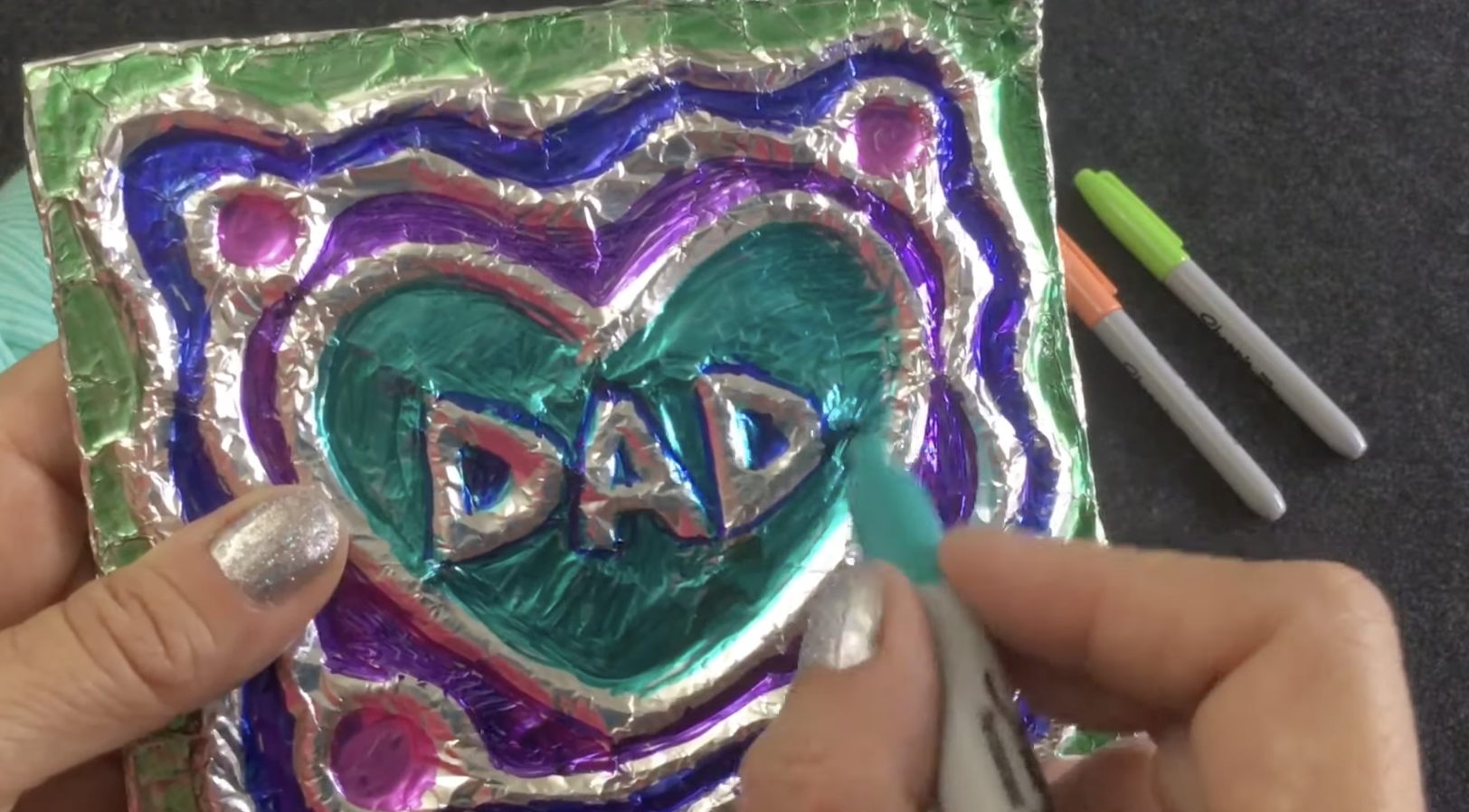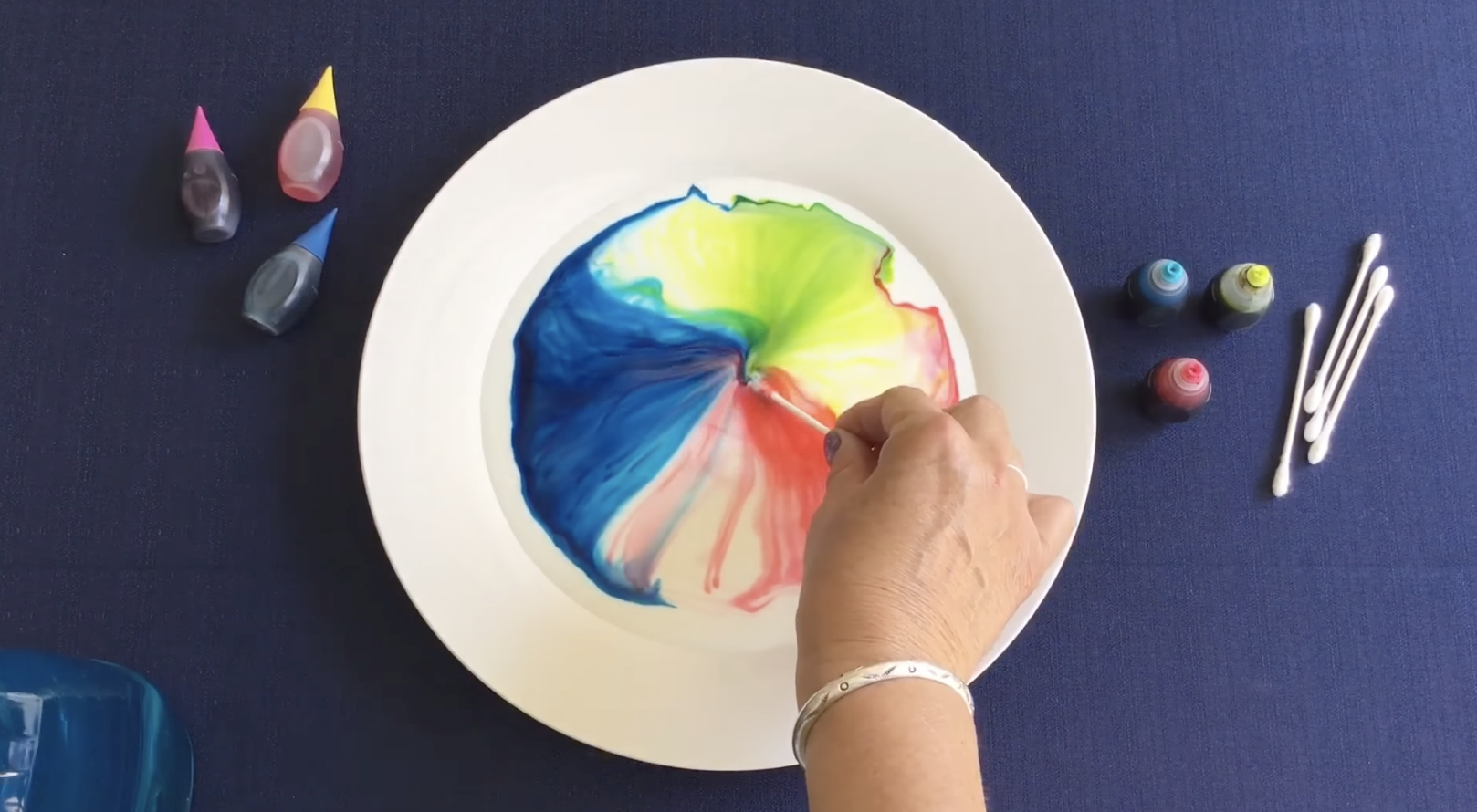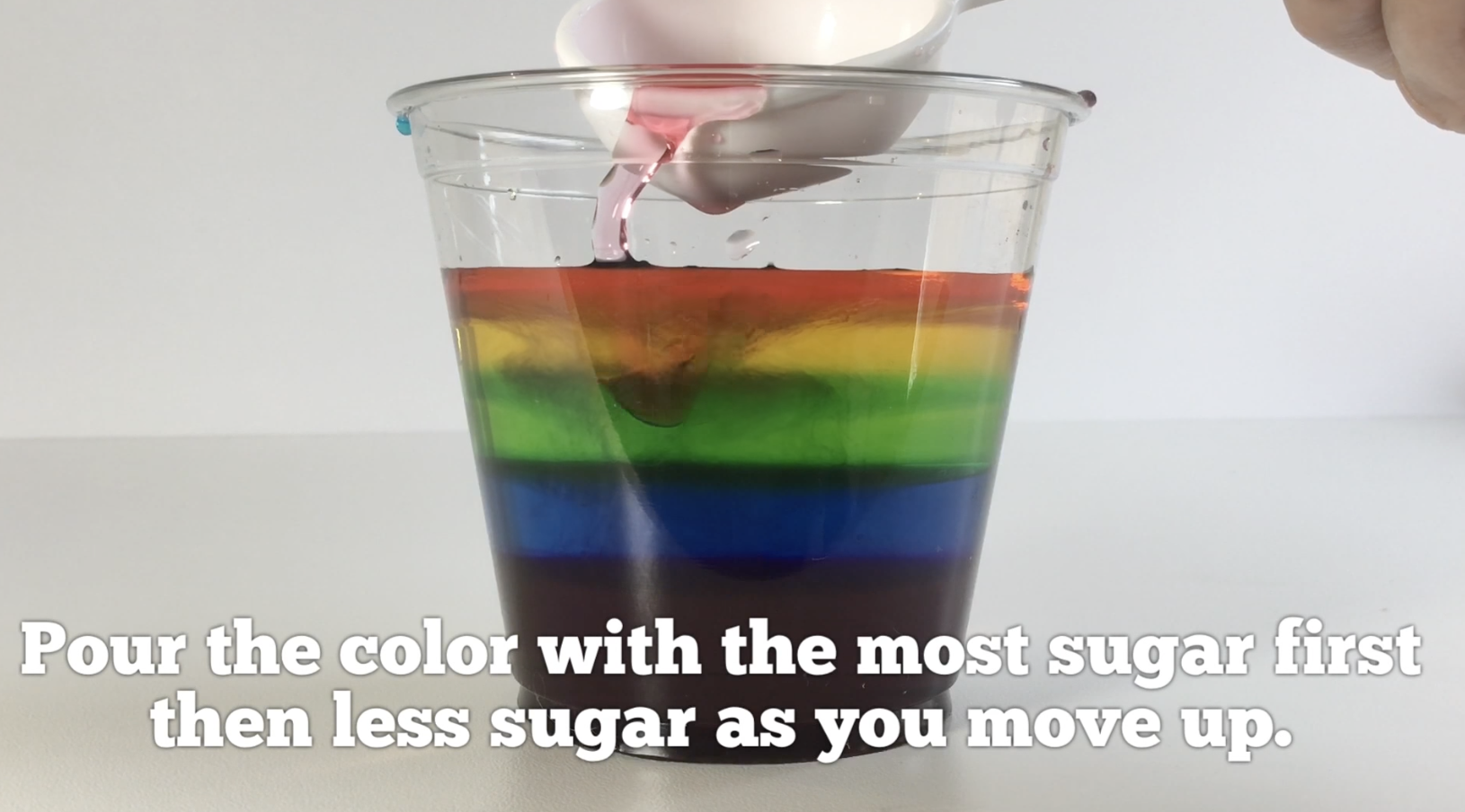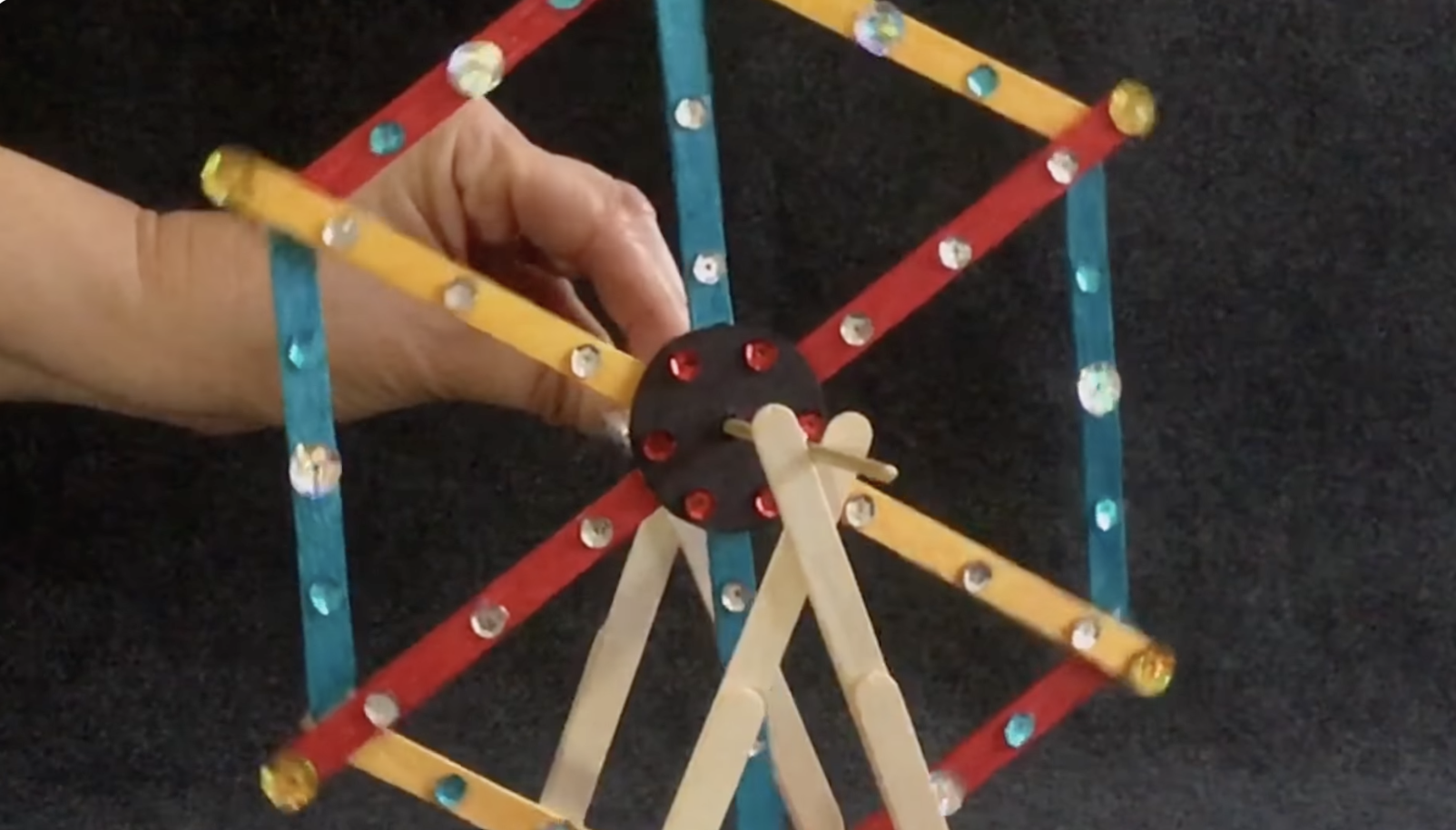Vocabulary Activities for Kindergarten & Preschool
Share
Grow your child’s word bank with these simple, hands-on vocabulary activities for young children.
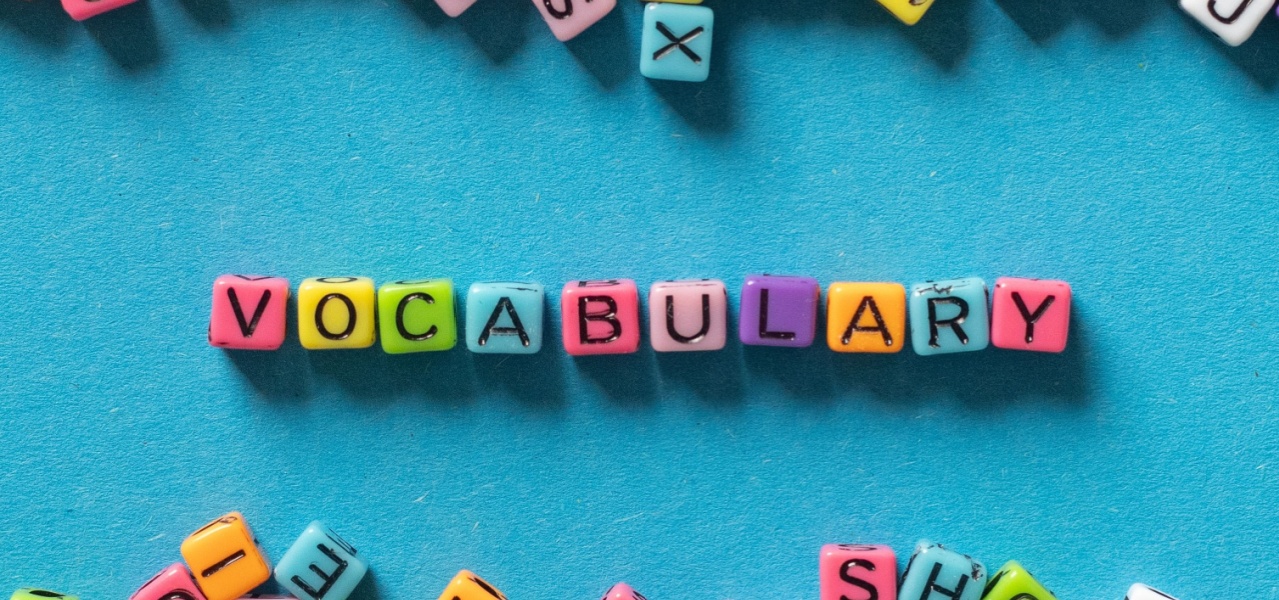
Vocabulary activities for kindergarteners and preschoolers can make a big impact on your child’s language development. After all, the bigger a child’s vocabulary, the better they can express themselves.
Building a child’s vocabulary is a long process that starts from their very first words. It’s important to fill your child’s world with new words even when they’re infants. By the time they’re in preschool and kindergarten, kids’ vocabulary can blossom through activities built around play, just like in the ideas listed below.
Strong vocabulary skills also support early reading development. Explore how the ABCmouse Online Reading Curriculum helps young learners build foundational reading skills through interactive games, books, and activities.
Vocabulary Words Versus Spelling Words
The difference between these two terms lies in their purpose. When kids learn spelling words, they focus on sounds and letters rather than the meaning of the word, as spelling words are usually words they already know.
Vocabulary words take a deeper dive, exploring the meaning and usage of a term. Spelling and vocabulary words may often be taught hand-in-hand, but they don’t have to be. In fact, younger children spend a lot of time developing their vocabulary with words they’re not yet ready to learn to spell. Filling a child’s world with new words as often as possible is the most important part of growing their vocabulary, as it allows them to better express themselves.
Use the following vocabulary lists as you and your child try some of the fun and meaningful vocabulary activities listed below.

Simple Vocabulary Activities
These activities don’t require much prep, and you can use them at any age by simply changing up the words you work with!
Vocabulary Activity #1: Read Together and Look for New Words
Any time you read with your child, you’re helping to create a love of books and strengthening their literacy skills. Turn read-aloud time into a vocabulary builder by actively looking for new words as you read together.

Reading aloud to your child lets you choose books that have more advanced text, which you can guide your child through. When you head to the library, look for books about topics that are new to your child. Then, keep a list of words that they don’t recognize and their definitions, and use them for vocabulary activities.
Vocabulary Activity #2: Try Nonfiction Books with Glossaries
Reading nonfiction books exposes your child to a new type of writing that often contains unknown words. Happily, nonfiction text often features key words in bold fonts and glossaries, which encourages children to look up the meaning of unfamiliar words. Additionally, children can see these new words in context of how they’re used, which helps them better understand what these words mean.
Vocabulary Activity #3: Make a Word Wall
In this vocabulary activity, you’ll hang a big sheet of paper on your wall and write new vocabulary words on it when they naturally pop up. (You can also put each word on its own note card and hang it instead.) Work with your child to figure out the definition, drawing from personal experience and how they heard or saw the word used in a sentence. If they still need help determining the word’s meaning, look it up in the dictionary and then explain the meaning in everyday terms to your child.
Vocabulary Activity #4: Learn a Word of the Day
Each day, pick one new word to focus on and try to use it as much as possible. Try this: Play a game where you see who can use the word the most in conversations throughout the day. Keep track and celebrate the winner at the end of the day!

Vocabulary Activity #5: Match Antonyms Cards
Think of pairs of antonyms (words that have opposite meanings), then write them on note cards, with one word on each note card. Then use them to play a matching game and discuss what each word means.
Here are some word pairs to include:
- in/out
- up/down
- dark/light
- night/day
- happy/sad
- hot/cold
- fast/slow
- tall/short
- big/small
- wet/dry
Vocabulary Activity #6: Build Category Lists
Choose a topic that your child is familiar with, such emotions, animal descriptions, or ways of moving. Then create a list of words for each category, explaining the meaning of any words they don’t know. Hang your lists up and review them with your child. Keeping new words categorized by topic can help children connect a general meaning to them.
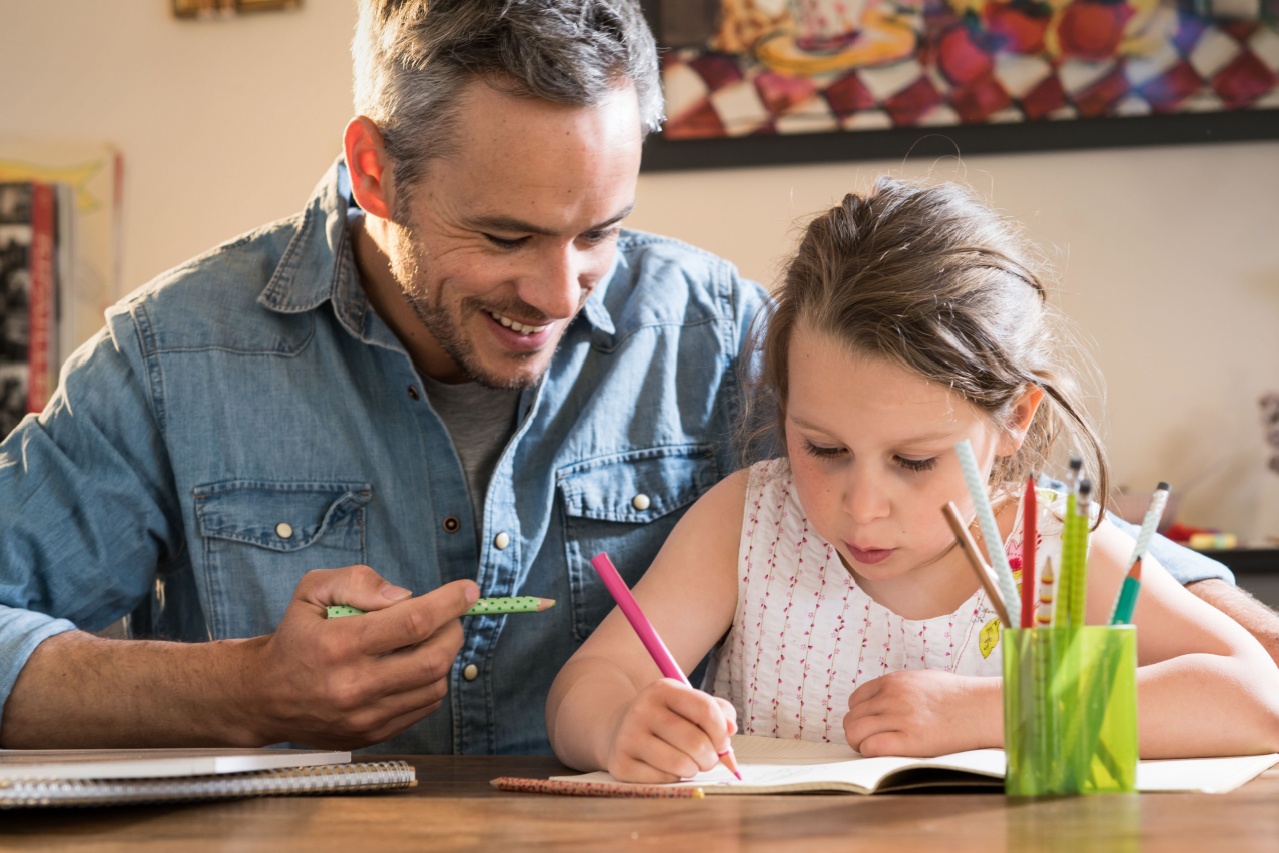
Vocabulary Activity #7: Vocabulary Word Stories
This vocabulary activity starts by writing down several vocabulary words for your child. Then either write or tell a story using those words. Your story should include context clues to help your child determine what the new words mean.
After reading or telling the story, discuss the vocabulary words with your child, sharing the meaning of the words if your child hasn’t figured them out. Then, give the list of words to your child and ask them to tell you a story using the words in the correct way.

Active Vocabulary Activities
Physical activity helps many kids learn more effectively, so take these activities on the go to discover new words anywhere and everywhere.
Vocabulary Activity #8: Take a Nature Walk
Take a clipboard or notebook with you the next time you stroll through the woods or your local park. Help your child identify things they don’t recognize and share synonyms for ones they do. For instance, if they point out a rock, decide together if it’s a pebble or a boulder. You can also take this opportunity to learn weather and landscape words, like “breezy” or “valley.”

Vocabulary Activity #9: Describe a Flower
Choose a flower and explore it together in detail. This is a chance to learn words directly related to flowers, like “petal” or “stem,” but also descriptive words in general. If your child notes that the rose smells nice, introduce them to the words “fragrance” and “floral.” Instead of just saying that the rose is red, you can teach them “crimson” or “burgundy.”
Vocabulary Activity #10: Go to the Store
Stores are chock-full of new vocabulary words! Grocery stores are a good place to start, because most kids love learning about new foods. (You might learn some words too!) For enrichment, head to a store you might not normally visit, like a hardware store or sporting goods store. Don’t forget to share shopping-specific words like “register” or “price.” See how many new words you can discover together!
Vocabulary Activity #11: Visit a Zoo
Animal names are just one category of vocabulary words the zoo can offer. Learn the words for foods they eat, where they live in the wild, and how they look and behave. If you’re standing at the elephant enclosure, teach them words like “trunk,” “savannah,” and “herd.” Don’t forget to describe what you see as creatively as you can: elephants aren’t just big–they’re “enormous” or “massive.”
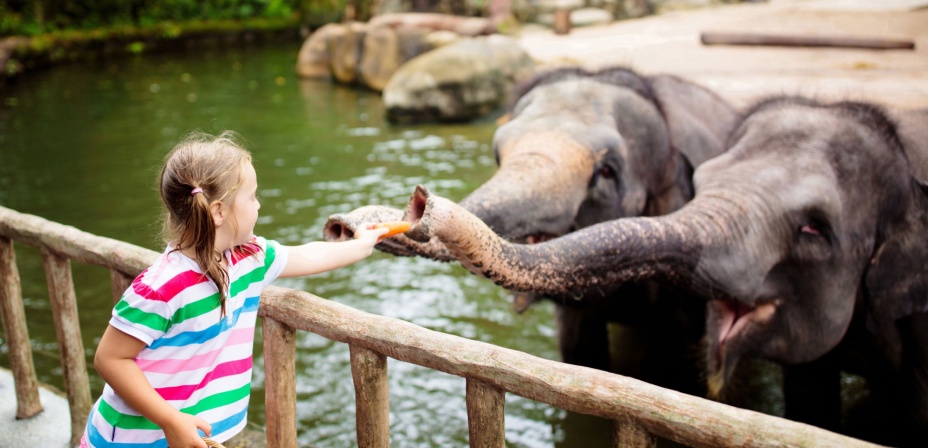
Vocabulary Activity #12: Read Signs
As kids begin learning to read, they’ll likely seek out new words everywhere you go. Spell out and learn new words on road signs or traffic signs, like “boulevard” or “yield.” Read signs on storefronts for words like “café” or “mechanic.” There are new words around every corner!
Vocabulary Activity #13: Try a Vocabulary Scavenger Hunt
Choose a vocabulary word, and head out to find things that match. For example, if your word is “tall,” you might point to tall trees, buildings, or even people. You can also complete this activity as a collage, collecting images from old magazines or newspapers and pasting them onto a page with the vocab word in the middle.

Creative Vocabulary Activities
Pick a vocabulary activity that encourages out-of-the-box thinking and artistic or theatrical flare.
Vocabulary Activity #14: Play Charades
Kids are much more likely to remember the meanings of new words when they try to act them out. You can also use vocabulary words for a game of Win, Lose, or Draw (Pictionary).

Vocabulary Activity #15: Tell a Story
Using new words in context can make it easier to remember them. Write a list of vocabulary words, then ask your child to tell a story using as many of them as they can. Older students can write their stories down, while younger ones will have fun dictating to you instead.
Vocabulary Activity #16: Illustrate New Words
Pull out the crayons and try to capture the essence of vocabulary words through pictures. This is simple enough for nouns but might be a little more challenging for other types of words. Either way, it’s fun to see what kids can come up with!


Online Vocabulary Activities
Digital vocabulary activities can help create a comprehensive learning experience as children explore new words in a different way.
Vocabulary Activity #17: Check Out Documentaries for Kids
There are so many kid-friendly documentaries out there. Watch them together, making a list of words that are new to your child. Then, look them up and use them for vocabulary activities. Try ABCmouse learning videos like these:
Vocabulary Activity #18: Watch Vocabulary Videos
You’ll also find lots of educational videos that focus on helping children learn new words. Be sure to visit the ABCmouse YouTube channel for these fun vocab videos and more:
Vocabulary Activity #19: Play ABCmouse Vocabulary Games
Research shows that playing online learning games has a big impact on young children, especially when it comes to literacy and reading skills. ABCmouse games are designed by experts to enhance the learning experience and build skills in effective, age-appropriate ways. Here are some of our favorites for vocabulary building. Note: These games may require an ABCmouse subscription to play.
Players click on different images in a kitchen to learn their names. Tip: After your child plays, head to your own kitchen and see if they can find and name the same items!

Chalkboard Word Pairs: In and Out
Practice opposite words in this game, where kids examine pictures to determine whether they represent “in” or “out.”
Click the correct item in each scene to match the bedroom vocabulary word. Also check out Where Is It? Bathroom.
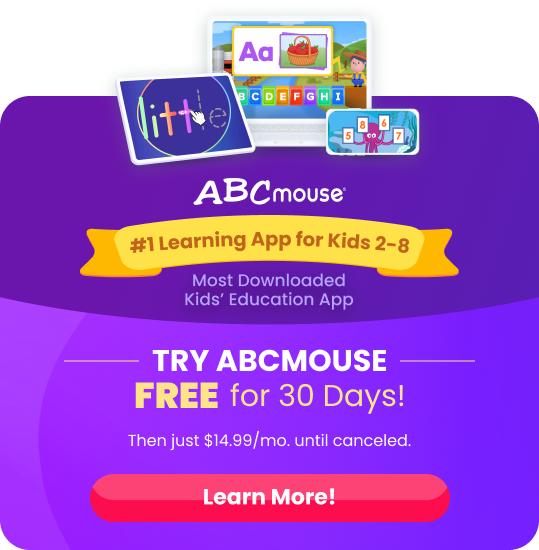
Related Activities
-
Try This STEM Activity for Kids: Popsicle Stick Ferris Wheel
Dive into a fun weekend project with our Popsicle Stick Ferris Wheel DIY! A perfect blend of creativity and basic engineering, it’s a STEM activity that…
-
Letter Sound Activities for Young Children
Explore fun and engaging letter sound activities for children aged 3-8. Learn interactive methods like Alphabet Sensory Bins, Phonics Obstacle Courses, and more to enhance early…
-
Embossed Foil Art: A Shiny DIY Adventure for Kids
Step into a shimmering realm of creativity with the “Embossed Foil Art” DIY craft, ideal for budding artists and craft aficionados. This activity not only unfolds…
-
Color in Motion: A Mesmerizing DIY Craft for Kids
Unleash a whirlpool of colors with the mesmerizing “Color in Motion” DIY craft, perfect for young learners. This activity is a fun blend of art and…
-
How To Make Your Very Own Rainbow In a Cup
Embark on a colorful scientific adventure with this Rainbow in a Cup experiment, perfect for young curious minds. This hands-on activity not only unveils a vibrant…
-
Try This STEM Activity for Kids: Popsicle Stick Ferris Wheel
Embark on a thrilling educational adventure with this DIY Popsicle Stick Ferris Wheel project, perfect for young minds keen on exploring STEM concepts. This activity melds…



